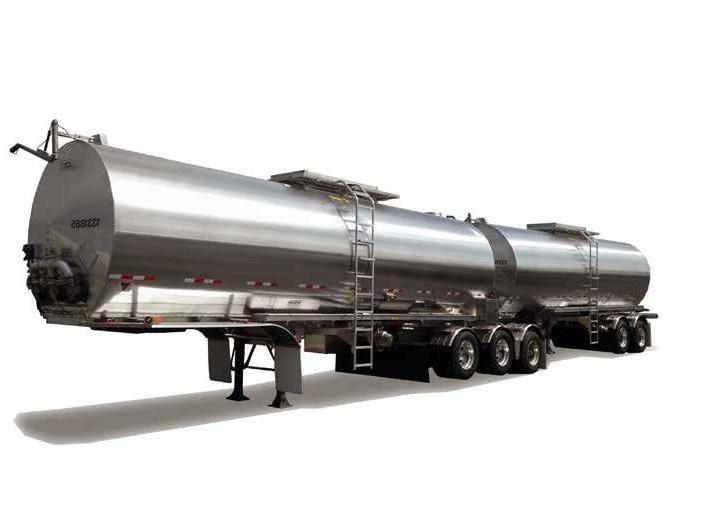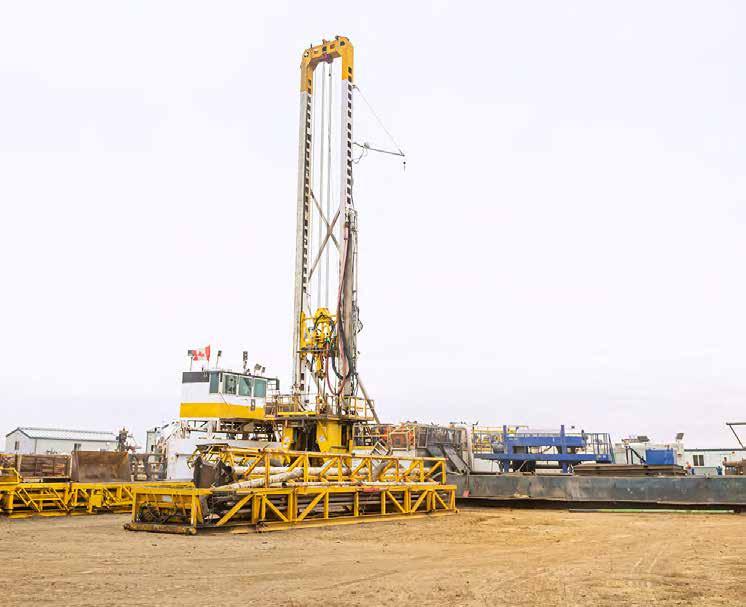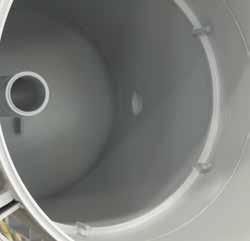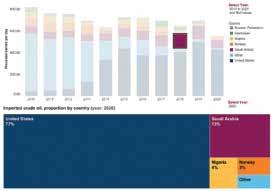
3 minute read
How to develop EOR technologies more efficiently with a stage-gated approach
BY PETRO NAKUTNYY, DIRECTOR OF OPERATIONS, EOR PROCESSES, SASKATCHEWAN RESEARCH COUNCIL
Core flood.
It’s OK to fail in technology development. But it’s important to do it quickly and move on.
When industry is developing new technologies to apply in the field, there are a lot of factors that go into the process — from concept to commercialization. At different points along the way, specialized expertise can be useful to keep the process on track and reduce development costs, as well as make the most efficient use of time. This helps to de-risk the technology development process.
The Saskatchewan Research Council (SRC) uses a stage-gated approach to help small-to-medium enterprises develop their technologies and evaluate technical, market and commercial factors. This helps our clients save time and accelerate adoption. We operate across the whole spectrum of technology readiness levels, from concept-feasibility to field commercial pilots.
Stage-gating technology development creates a roadmap for evaluating the field and the proposed technology at key points during the process. SRC has developed fast-to-fail tools that allow us to quickly test new ideas and identify any showstoppers. The review will either confirm the technology is ready to advance to the next stage or identify if further work is required, cycling the technology back through the previous stage.
This process prioritizes early evaluation of factors that are most likely to cause a technology to fail. If a technology is not likely to succeed, it can be cancelled at the lowest possible cost in time and resources.
First, a comprehensive roadmap is developed that can realistically take a new technology or concept from the drawing table all the way to the field. It’s a six-step approach that SRC has applied to several new technology developments and start-ups. These six steps are, of course, tailored to the experiment goals.
The approach starts with identifying the mechanisms and possible failure factors, so that they can be addressed as soon as possible. If it makes sense to proceed, the next step is designing and performing small and large-scale experiments. It is very important to choose the appropriate experimental design, including factors such as model size, aspect ratio, injection and production wells.
Once the experimental setup is chosen and prepared, several of the experiments are run and what is often found is that the initial idea needs significant modification for the technology to succeed.
The next step is numerical simulation and because it’s already been
tested it at a larger scale, now it’s a lot easier to predict field performance. After this, the field pilot is planned, which often involves selecting a location and providing monitoring to help determine how successful the technology is and/or what could be changed to make it even better.
An important part of this stagegated approach is the use of custom, large-scale physical models in the experiments. These 3D models are designed and built by SRC’s experts and can be tailored to the process and specific application. These models provide the capacity to scale up to field conditions, which also reduces experimental uncertainty and reduces the risk of unexpected issues at site.
Of course, none of this is valuable unless it works. This approach has allowed SRC to take many technologies from basically an idea to the field in under five years — much faster than the industry average.
So, keep going — the world needs new technologies, tools and techniques to help accelerate innovation in the field. And SRC’s stage-gated approach will continue to be there to support industry in these important endeavors.
SRC’s Enhanced Oil Recovery team has provided science-based solutions to industry since 1986. View the complete article on SRC’s blog at https://www.src.sk.ca/blog. v
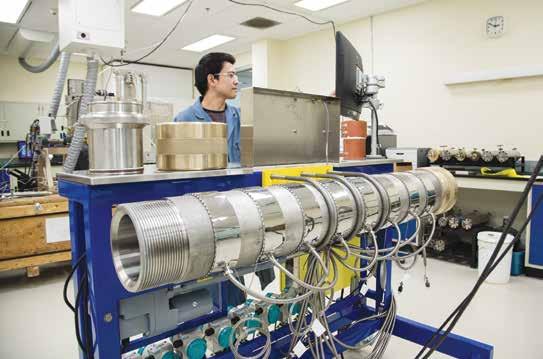
Our diversified fleet
Universal test sands.
will meet your equipment demands!
It’s what we know… just ask!
Warren McDonell Jason Hugo wmcdonell@transcourt.com jhugo@transcourt.com When it comes to Leasing, Financing or Sales. It's what we know. Just Ask!780.913.2700 403.606.0880
